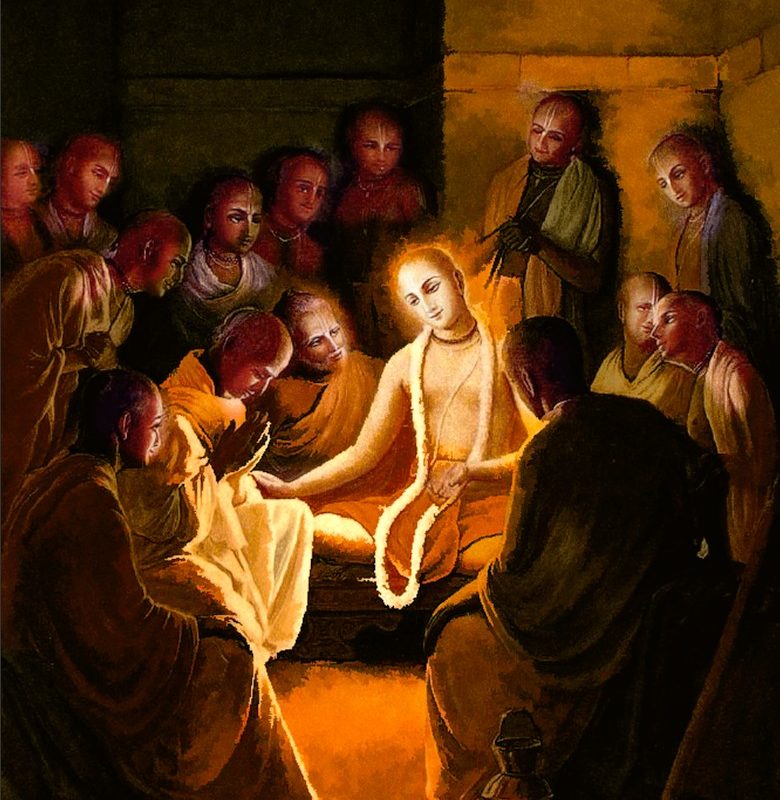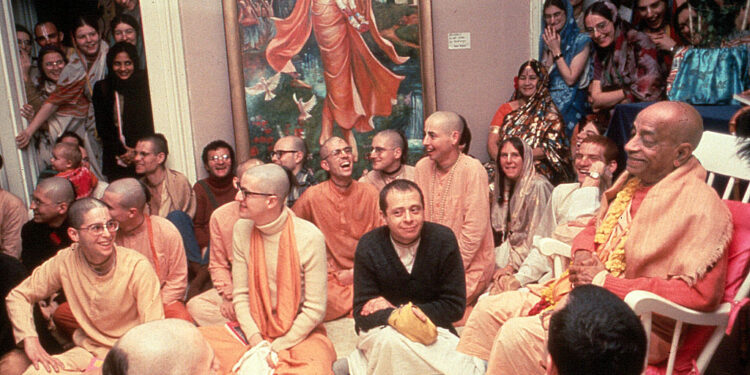So Kṛṣṇa subject matter is so nice that simply you do not do anything. Simply hear, that’s all. You have got God-given ear. You can hear. Sit down. Stane sthitaḥ śrutigataṁ tanuvān manobhiḥ. Śrutigatam, śruti means this ear. Śrota-pantaḥ. This is called śrota-pantaḥ. Getting knowledge by hearing. Satāṁ prasaṅgān mama vīrya-samvido bhavanty hṛtkārṇa-rasāyana-kathāḥ, satāṁ prasaṅgāt [SB 3.25.25]. When there is actually sat-sanga. Sat-sanga means this talking of Kṛṣṇa, hearing about Kṛṣṇa. When there is, there is no business. Not like a rented reciter or a paid reciter who is earning money by reciting. No, no. Not to hear from him. Actually, he’s self-realized, who is working for the Lord, from satām. Satām means devotees. Satāṁ prasaṅga. Therefore is called satsaṅga. Satsaṅga means the association of the devotees. Sat means devotee. Sat means God. Oṁ tat sat. Or everything is asat. Asat means temporary. This material world is temporary. And sat means spiritual. So sat-saṅga means spiritual association. Sat-saṅgān mukta-duḥ-saṅgaḥ. The more you associate with sat, with devotees, then you become, more you become liberated. Sat-saṅgān mukta-duḥ-saṅgaḥ. Duḥ-saṅga. We are in the material world, we are simply in association, bad association, duḥ-saṅga. So if we want to get rid of this bad association, we must associate with the devotees. Sat-sangat mukta duhsanga. And satāṁ prasaṅgāt mama vīrya-samvido, if we hear in really devotee’s association, then the… [break]

Source: Srila Prabhupada | Bhagavad-Gita 2.11 – London, August 17, 1973. 730817BG.LON




















